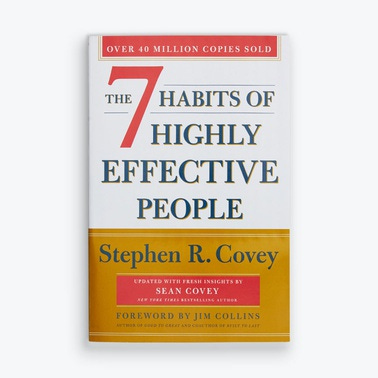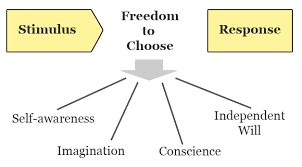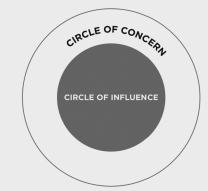Hi friends,
Welcome back to my newsletter. I hope you are all doing amazing. In this short post, I want to discuss the habit/quality of being “proactive” in life. I will share and explain my highlights from Chapter 1 (Habit 1 of 7) of The 7 Habits of Highly Effective People by Stephen R. Covey. Let’s get started…
As mentioned, I will share some of the highlights from the beginning of 7 Habits (one of the books I’m currently reading). As suggested by the title, the book is structured around the 7 Habits. As I finished reading up to the 1st Habit - “Be Proactive”, there are some key ideas that piqued my interest.
What does being “Proactive”⚡ mean?
When we hear the word “proactive”, we usually think about taking initiative. However, that is a narrow view of a fundamental quality of being proactive. As explained in the book, being proactive means that we are responsible for our lives, our behavior is a function of our decisions, not our conditions. It means that we can subordinate feelings, and circumstances to values and principles.
Responsibility
Before I continue further, let’s understand responsibility. If you look at the word response-ability (responsibility), it means the ability to CHOOSE your response. A highly proactive person recognizes that responsibility. They do not blame external circumstances, conditions, etc for their behavior.
If our lives are a function of conditioning and conditions, it is because we have allowed those things to control us. Such a choice makes us reactive. Reactive people, as the word suggests, react to the environment around them. If the weather is good, they feel good. If it isn't, it affects their attitude. “Proactive people can carry their own weather with them”. Proactive people are also affected by their environment and external conditions; however, they respond to those situations with a value-based choice, not emotions.
Take a look at the “proactive model” from the 7 Habits to understand responsibility and proactiveness. It is the choices that are made between the stimuli (problem) and the response (your action toward the problem), that distinguish between reactive and proactive people.
CIRCLE OF CONCERN/CIRCLE OF INFLUENCE
One of my favorite concepts from the book so far is the concept of the circle of concern/circle of influence. We operate in two circles: the circle of concern (the outer circle), which are things that we can’t control. And the circle of influence (the inner circle) consists of things that we can control and change. Proactive people excessively focus on the circle of influence, which allows them to expand this circle. Conversely, reactive people put more attention on their circle of concern, shrinking their circle of influence gradually. When there’s a problem, we often blame other external factors instead of directing our efforts at small things we can change to solve the problem. Understanding these two simple circles made me realize times in my life when I focused my efforts on the things I couldn’t control and blamed others. Now, every time I am faced with a problem or situation, I stop myself before I point fingers at other people or circumstances. Instead, I respond to it by focusing my efforts on something that can potentially help me improve my current situation/problem.
It’s freeing to not worry about decisions and results that are out of our hands. I invite you to be a proactive person next time a problem arises in your life. Take action on the things you can take action on and maximize your influence. This habit is a foundational step to becoming a leader and living your most effective life. Remember, being proactive means taking responsibility over blame, and being the role model, not the criticizer. Now, go ahead and take control, take charge…
Thank you so much for reading! I hope you enjoyed it and found something valuable. Have a beautiful day :)







